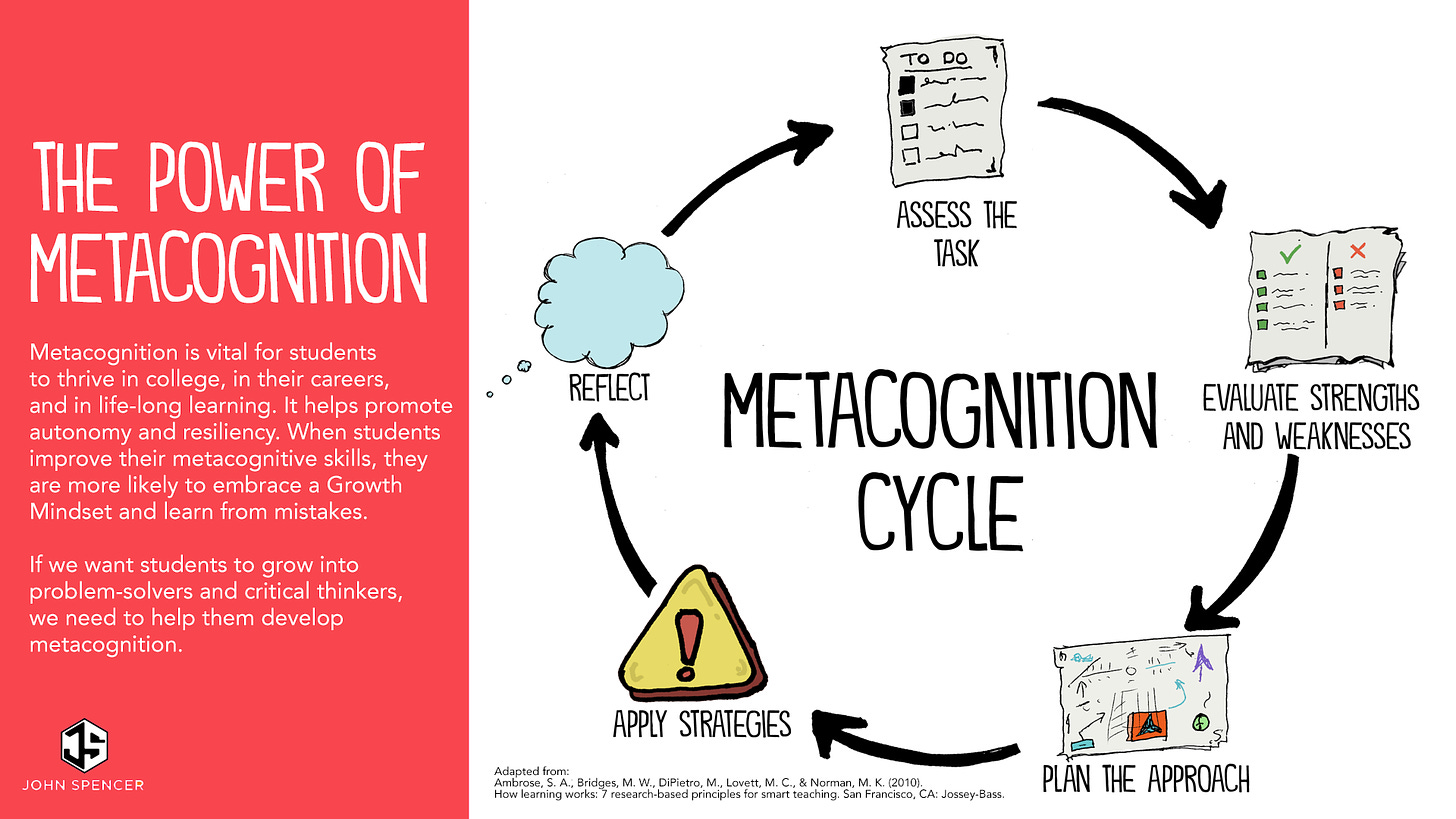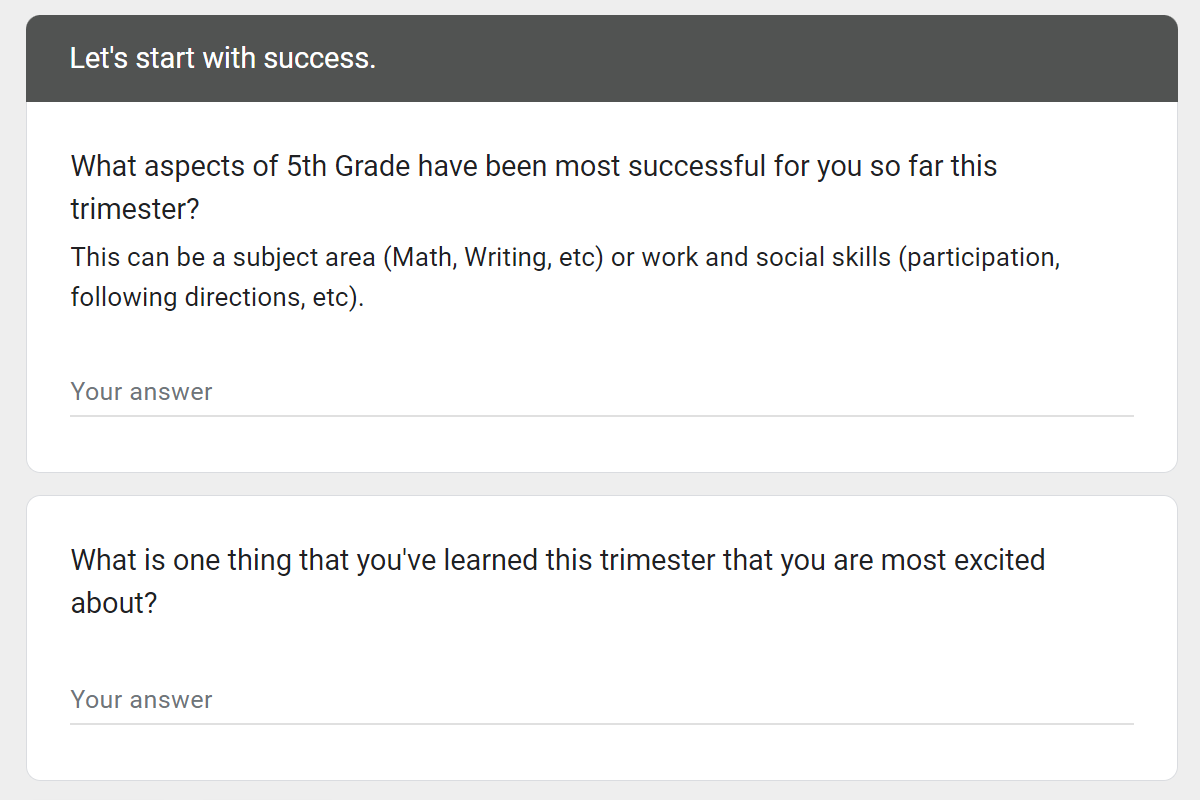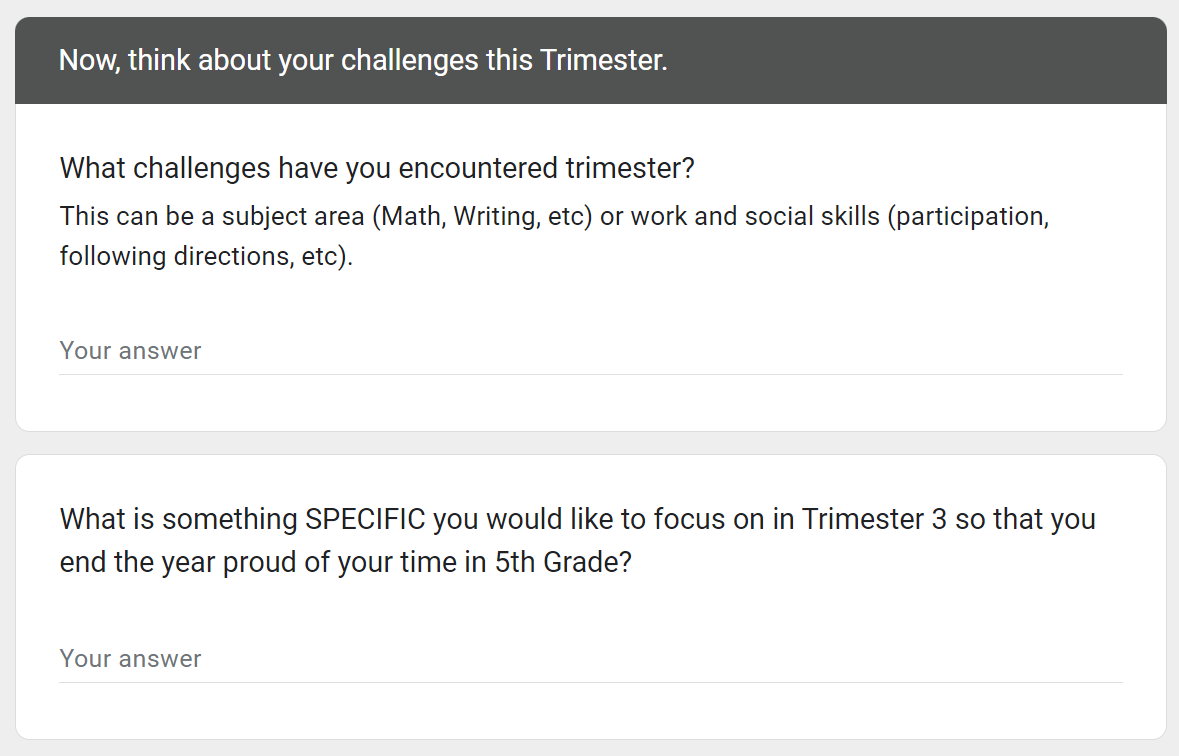Parent conference week is exhausting with multiple late nights discussing students’ academic growth. Conversations with parents can be challenging, especially if the progress report card is not what they expect. At the end of our first trimester, I meet with parents and chat about their child. I always begin each conference with the same questions, How is __ feel about the 5th Grade? Are they enjoying school?
Student learning is easy to measure if you look at the student, not the test. So, instead of centering the report card, I center the student. My conversation with parents usually includes discussing many of the following questions. These types of questions provide me with more relevant data than any report card numbers.
How do students feel during the learning experience?
How are students participating (or not) in the classroom discussion?
What parts of the learning experience do students talk about with their friends and family?
What specific concepts and ideas do students remember from the learning experience?
I am always pushing my students to think critically about their school experiences. I want my students to reflect on their own thinking. John Spencer discusses five ways he boosts metacognition in his classroom. Students should be given the freedom to lean into their academic genius and authentic selves. To do so, students need to regularly reflect on their own thinking and their learning environment.
One of the most effective ways I’ve seen students take ownership of their learning is through student-led conferences.
I just finished our second-trimester conferences. All of my parents scheduled time to meet because they knew that their child would be presenting on their academic and social-emotional progress. When students ask me, "Why do I have to lead my own conference? I explain to them that I want them to take ownership of their learning. I want them to think about Trimester 2 and be honest about their growth. I never want conferences to be a place where students feel caught out in some wrongdoing. Instead, I encourage students to focus on their success, growth, and goals.
Students do a lot of reflecting in the week before their conference. We start with their success stories, collecting work samples and preparing what to say to their parents.
I meet with students one-on-one so that I can coach them in creating actionable goals for Trimester 3. I want them to be able to present a gameplan to their parents.
Since I am always working to strengthen relationships with my students, I give students an opportunity to share anything they want me know about before their conference. If they are worried or stressed to present to their parents, we come up with a plan that allows students to present while I help facilitate with questions.
Students spend the week completing a presentation for their parents. I give them a template that I have tweaked for fifth grade. There are so many ready-made templates available online. My favorite comes from Alice Keeler’s website TeacherTech. She showcases a Google Slides template made by a middle school teacher named Natalie Miller-Wolf. I’ve since modified this slide deck to use with my students.
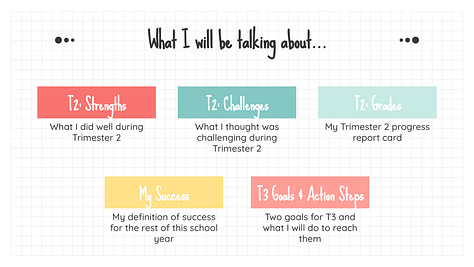
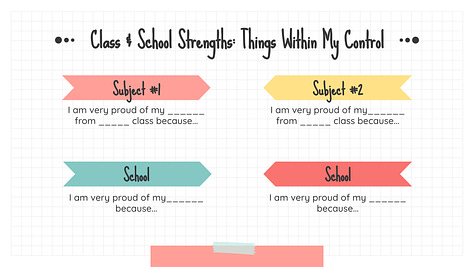
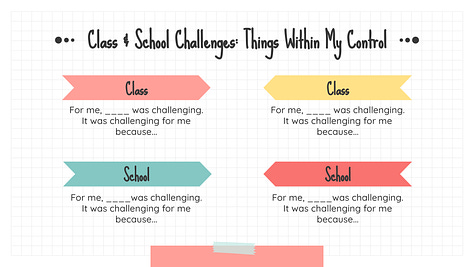
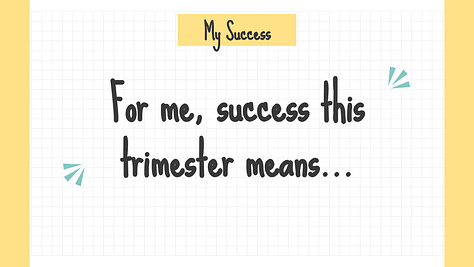
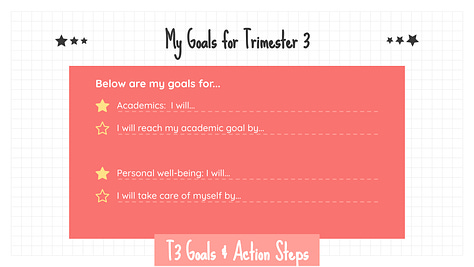
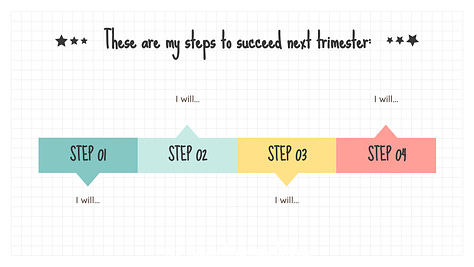
My favorite part of student-led conferences is being an attentive audience member. I take notes and ask questions, helping my students elaborate when needed. Students are always nervous to present in front of their parents, especially if they are not feeling great about their academic progress or classroom behavior. However, I am continually amazed at how upfront and honest my students are when addressing misbehavior or a lack of growth due to indifference or indolence. My students know that I am there to support them. In these conferences, we have very authentic conversations about how to get back on track and finish the school year feeling proud.
I believe that student-led conferences are the most authentic way to assess my students. A report card is a static document. Our student-led conferences are dialogues where students lead the conversation about their learning. They identify their needs and, together with parents, we create a plan for the last trimester.
This is student agency. My ultimate goal as a teacher is to encourage my students to think of themselves as inquisitive, resilient lifelong learners, who have control of their learning and achievement. I want to assess things that matter and that means helping my students learn and grow beyond the report card, beyond my classroom.
Have a great week!
—Adrian
Resources
I first learned about student-led conferences from High Tech High, a high school in San Diego, CA focusing on the principles of personalization, adult world connection, common intellectual mission, and teacher as designer.
Here is a ton of great resources you can use in your own student-led conferences!
What if assessment was more like a puzzle than a standardized test? Watch this video and be amazed!
We are fast approaching the season of standardized testing. Check out how Stanford’s d.school K12 Lab design and run learning experiments to solve some of public education’s biggest problems.
Before I try anything new in my classroom, I need to see it in action. The above video from edutopia is good visual of what student-led conferences look like. They even have resources that educators can use to get started.
A School-Wide Approach to Student-Led Conferences by Patti Kinney, Mary Beth Munroe, and Pam Sessions.
Even though this book is over 20 years old, it really helped me sell the idea of student-led conferences to my teammates and administration.
A Step-by-Step Plan for Elementary Level Student-Led Conferences
First, ou need to check out the Teaching Channel. I’ve relied for years on their videos for my own professional learning. I love watching other teachers teach in ways that is different from me. I get to learn new strategies and adapt them to my classroom.
Second, the above step-by-step plan is for running overlapping student-led conferences in stations around the classroom. My teammates prefer this format in order to schedule more conferences each evening. I’d rather focus on one student at a time, giving them my undivided attention. Still, I’ve seen this format work well form many teachers in my building, especially in the primary grades.



